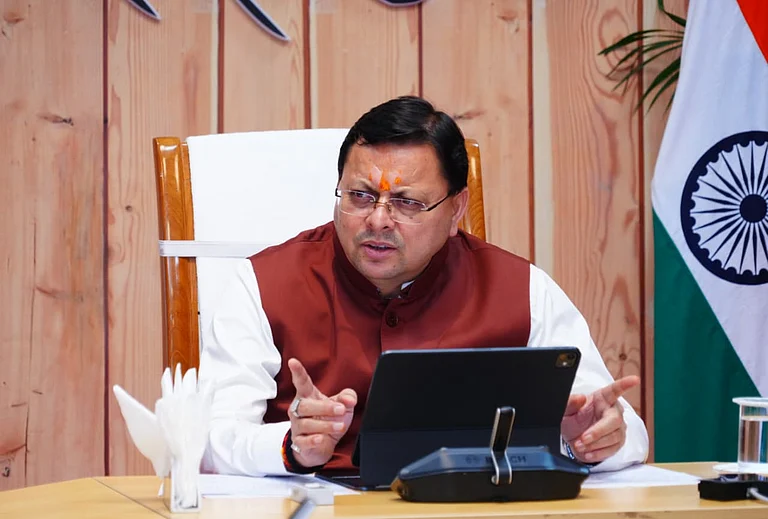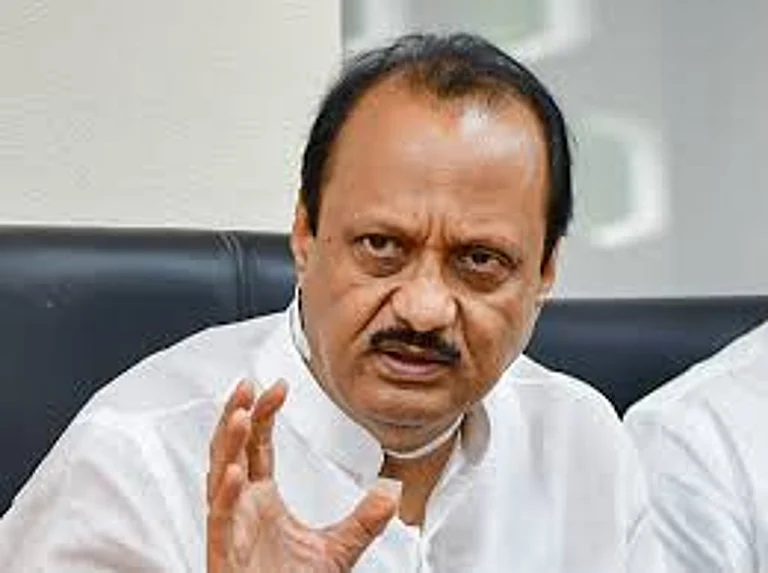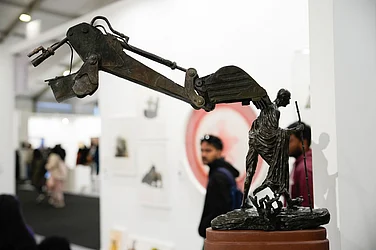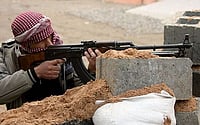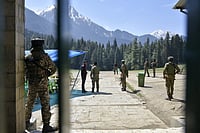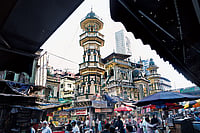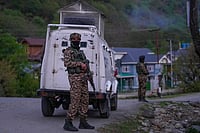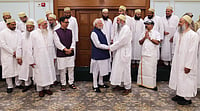Months after coming to power in Maharashtra in 2015, the BJP-Shiv Sena government triggered a controversy with its decision to de-recognise madrasas teaching only religious studies and consider nearly 1.5 lakh children studying in such institutions as “out of school” students.
Now, in October 2024, the BJP-led coalition government has announced that the salaries of madrasa teachers will be more than doubled. The decision comes ahead of the state Legislative Assembly elections to be held on November 20, in which the coalition is eyeing a third consecutive victory.
The two decisions, ten years apart, shows how the BJP is utilising the ‘Muslim factor’ when seeking votes to come back to power, say members of the Muslim community.
“It is clear that this decision is taken to appease Muslims ahead of the elections,” says Mahmood Daryabadi, Mumbai-based Islamic scholar and founder-member of the All India Muslim Personal Law Board.
While in power, BJP leaders in Maharashtra have targeted madrasas and mosques, fanning Islamophobia. Atul Bhatkhalkar, a legislator from Mumbai had demanded the government shut down state-funded madrasas for allegedly promoting radical religious teachings. Nitesh Rane, MLA from Konkan, and son of former union minister Narayan Rane, urged for ‘bulldozer action’ against illegal mosques and madrasas.
Daryabadi also pointed to the contrast between the BJP government in Uttar Pradesh, where Chief Minister Yogi Adityanath has cracked down on unregistered madrasas and is investigating their funding, and in Maharashtra where CM Eknath Shinde has increased the teachers' salaries.
Daryabadi added that the Muslim community needed modern education and that the government should help children with scholarships and reservations. “Help us curb school dropouts, give us permissions to administer and manage private schools. Many organisations who want to set up their schools, do not get NOCs from the government,” he said.
As per the Sachar committee report, less than 2 per cent of school-going students are enrolled in madrasas which primarily impart Islamic education and teach the holy book of Quran in Arabic, Urdu and Persian languages.
Madrasas broadly follow two types of education system: Madrasa Darse Nizami, which has its own curriculum of religious studies and is run on charity; and Madarsa Darse Aliya, which is affiliated to the Madarsa Education Board and follows the state’s school curriculum.
Currently 20 states including UP have their own madrasa education boards administered by the respective state governments. In Maharashtra, the majority of madrasas are run autonomously on private donations. An estimated 1,890 madrasas are registered with the Charity Commissioner (run autonomously), and 121 are registered with the state government.
Several trustees and madrasa teachers across Maharashtra, interviewed by Outlook, applauded the salary hike but emphasised they would not benefit from it as they do not fall under the beneficiary category.
In October, the state’s minorities development department, headed by Abdul Sattar Abdul Nabi of the Nationalist Congress Party (Ajit Pawar faction), approved funds for Muslim welfare. In the Mahayuti government comprising BJP-Shiv Sena and NCP (Ajit Pawar faction), the latter has the significant Muslim support base.
Under the Dr Zakir Hussain Madrasa Modernisation Scheme, the department increased the salaries of government-appointed teachers providing formal education such as mathematics, science, English, and sociology from Rs 6,000 to Rs 16,000 and from Rs 8,000 to Rs 18,000 per month. Last year, too, CM Shinde allotted Rs 10 lakh for the construction of libraries, pay for the salaries of teachers, and the general modernisation of madrasas registered with the Wakf board.
Additionally, the state cabinet increased the capital of the Maulana Azad Minorities Financial Corporation to Rs 1,000 crore from Rs 700 crore.
The Jamiya Islamia Darul-Uloom Mohammadia Himayat Nagar in Nanded city, Marathwada, is one of the most prominent madrasas that has been running for more than 50 years. Its alumni have become doctors, teachers, professors and government officials. The madrasa follows the state government curriculum for formal education, besides religious studies, and has a strength of 600 students.
Officials said the madrasa appoints its teachers to impart formal education. “We do not get any funding from the government. We pay salaries to our teachers from our corpus collected through donations and fees from those students who can afford to pay,” said teacher A S Aslam.
The Raza-e-uloom, a madrasa run by the Raza Education and Welfare Society at Mohammad Ali Road in Mumbai, has one hundred students learning Islamic studies and English and is also run autonomously. Irfan Shaikh, secretary of the society said, the school conducts classes in batches with the help of its four teachers. “We don’t have funds or facilities to appoint more teachers for other subjects. Our madrasa is not registered with the government and hence we will not benefit from the scheme.”
Altaf Patel Kokani, an activist from Mumbai’s ‘Muslim Pressure Group' questioned who would be the beneficiaries of the schemes considering the majority of the madrasas which operate in Muslim-dominated areas and slums are run privately. “Every time during elections, the government comes up with some scheme or funds in the name of Muslims to influence their voting choice and the madrasa salary announcement is one such,” he said.
Kokani added that in a city like Mumbai, which has a large impoverished Muslim population residing in slums, people need mainstream education and employment. “We do not want such schemes. Our children need modern education, loans, and financial assistance to compete for jobs. Our demands are the same as other citizens, why single out madrasa education,” he asked.
Fauzia Khan, spokesperson of the Nationalist Congress Party (Sharad Pawar faction) and member of the state Waqf Board echoed that the government was using populism towards the Muslim community. “The hike in salaries is a good measure, but it will help only a small portion of madrasas. Such moves do not help the community as a whole.”
The disbursements of funds in the name of Muslim welfare has also come as a surprise to many Marathi Muslims given the increased violence and targeted attacks against the community.
Since CM Shinde’s Mahayuti government came to power in 2022, there has been a spike in communal incidents. Several incidents of cow-related violence, communal tensions and riot-like situations were reported for the first time in several parts of the hinterland in Kolhapur, Ahmednagar, Nashik, Jalgaon, Chhatrapati Sambhajinagar and even Mira road in Mumbai. Mobs of Hindu right-wing groups vandalised and attacked mosques, and threatened Muslim locals with killings. Under the umbrella of Sakal Samaj, comprising several right-wing outfits, more than 50 jan aakrosh (Hindu fury) rallies were carried out across the state to demand legislation against love jihad while blaring hate speech against the Muslim community. The home ministry under BJP leader Devendra Fadnavis refrained from banning the rallies or levying any charges against perpetrators of hate speech.







